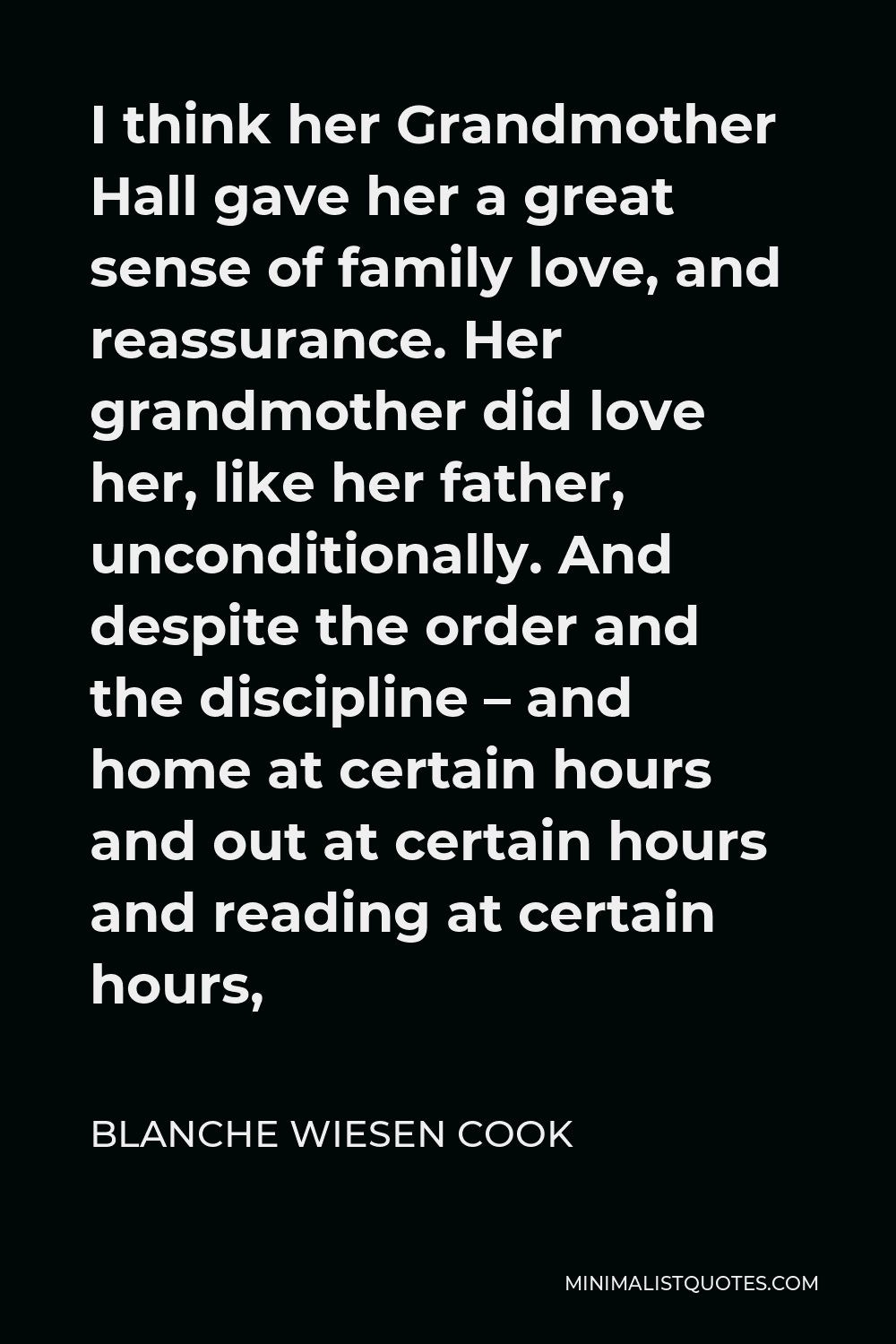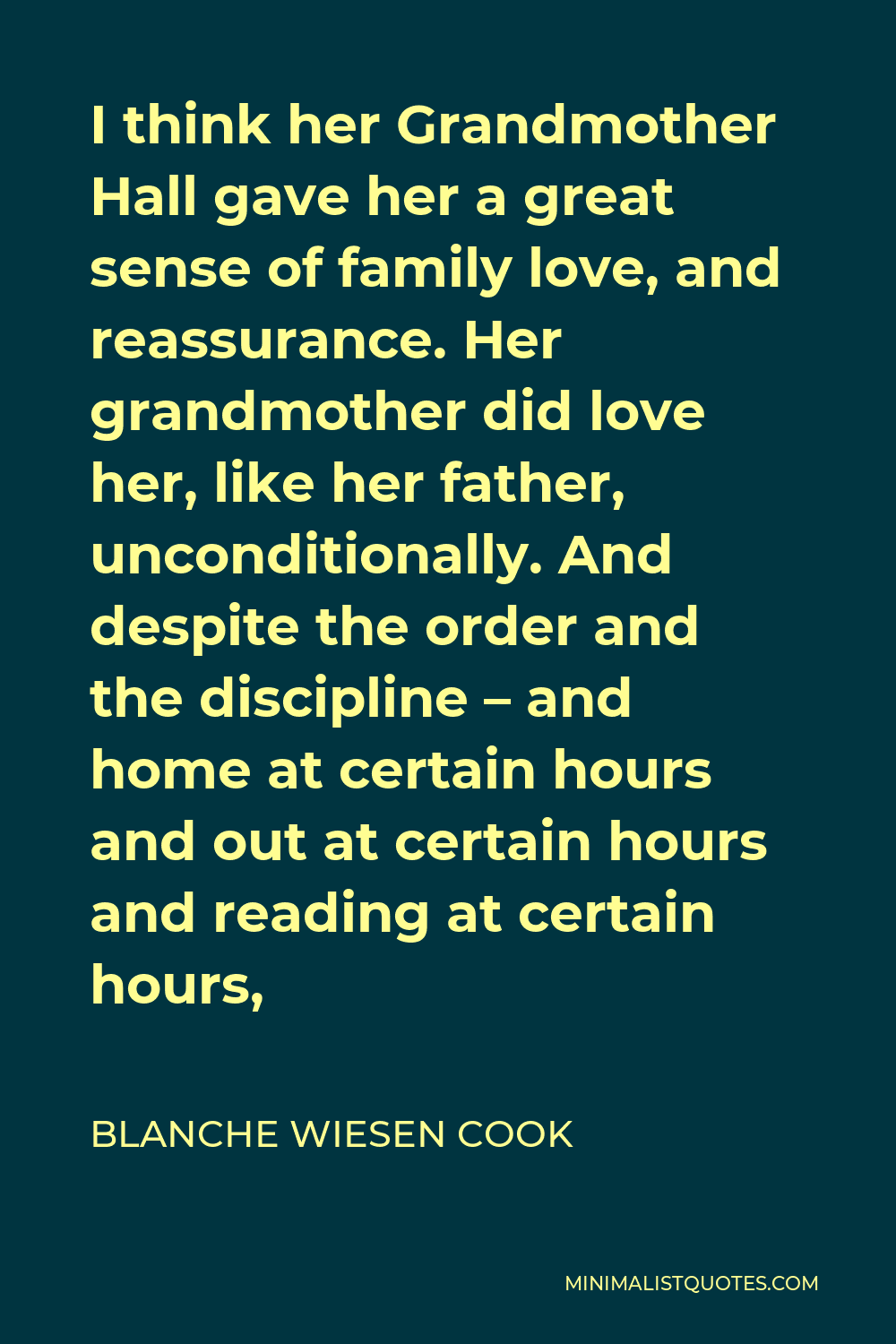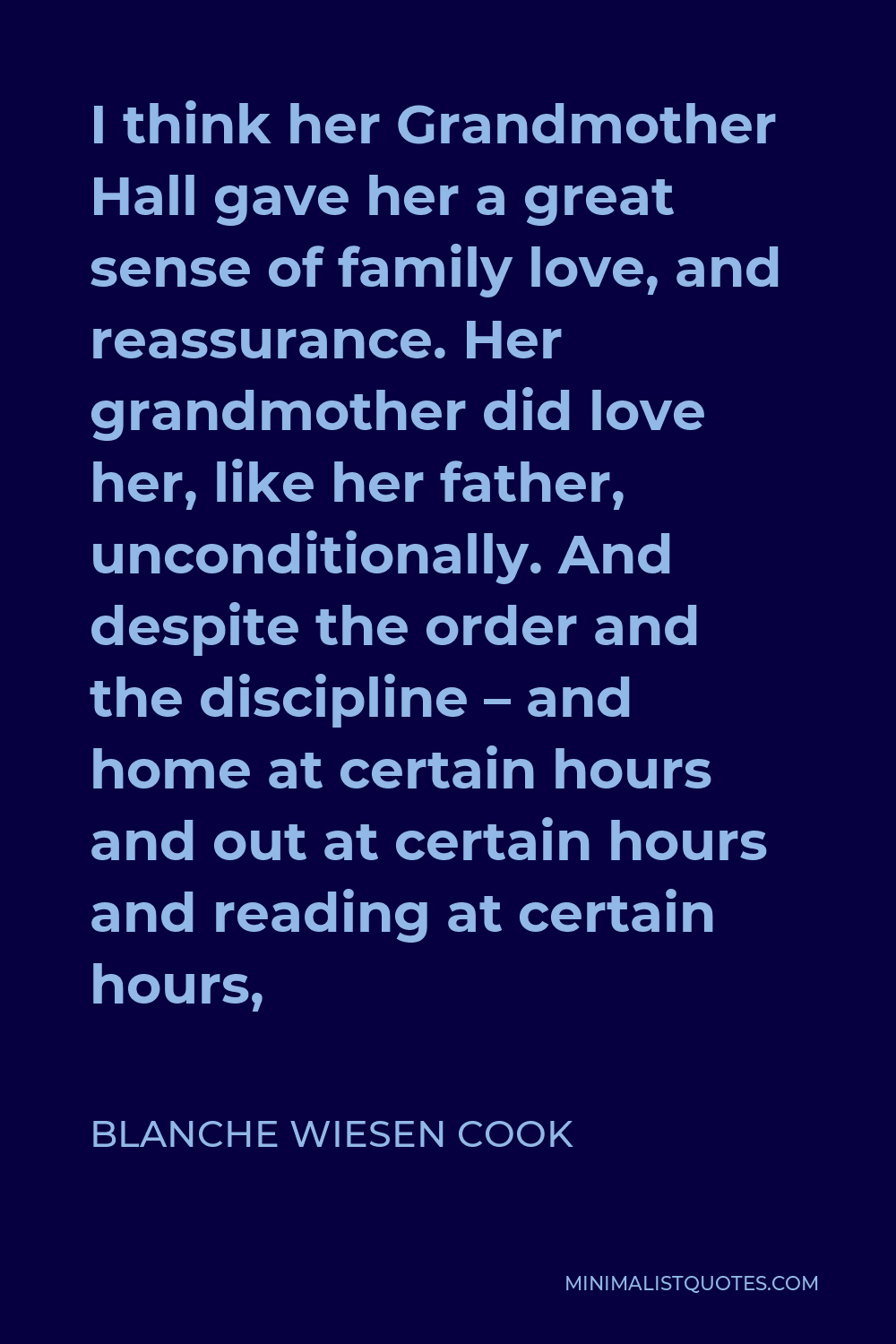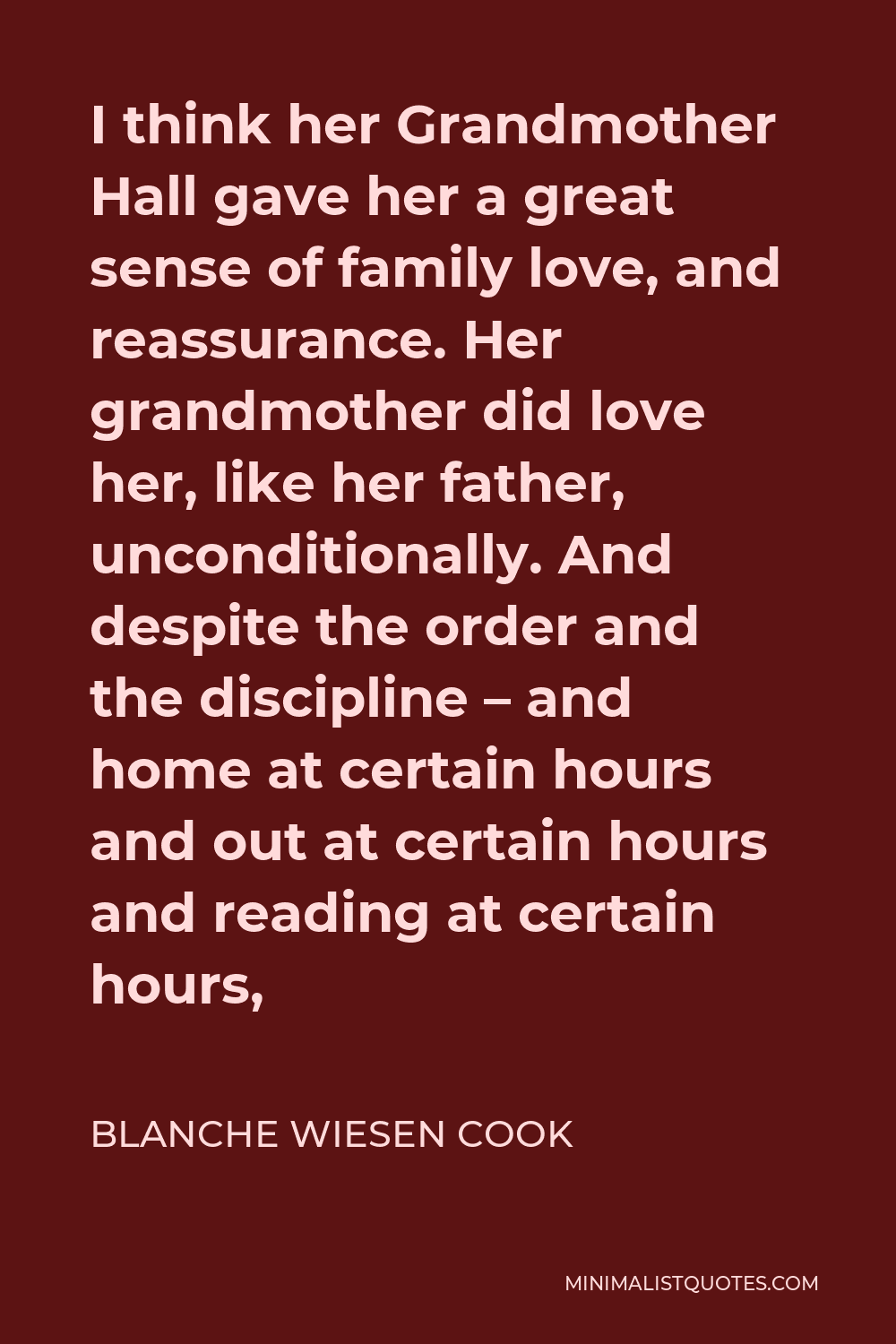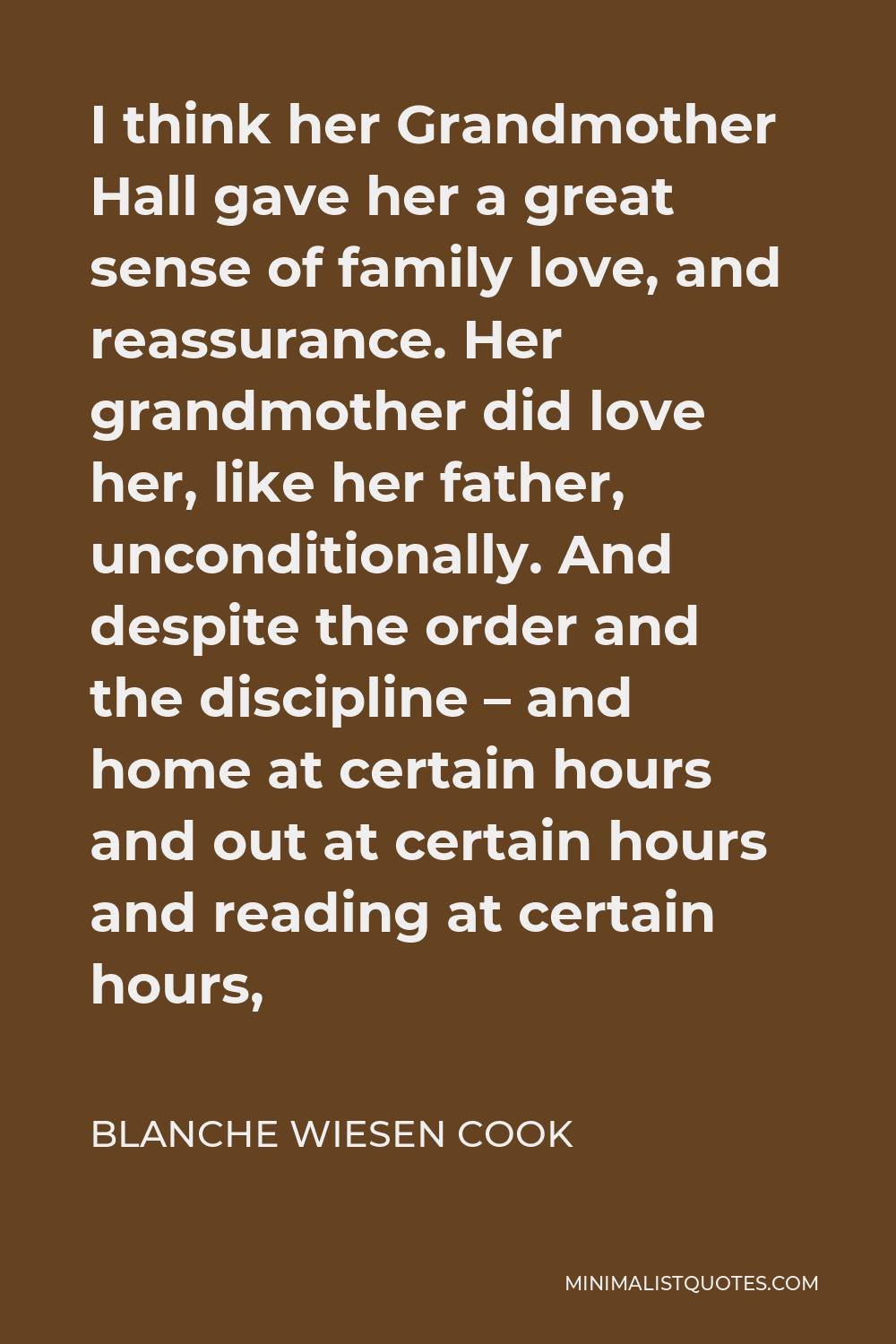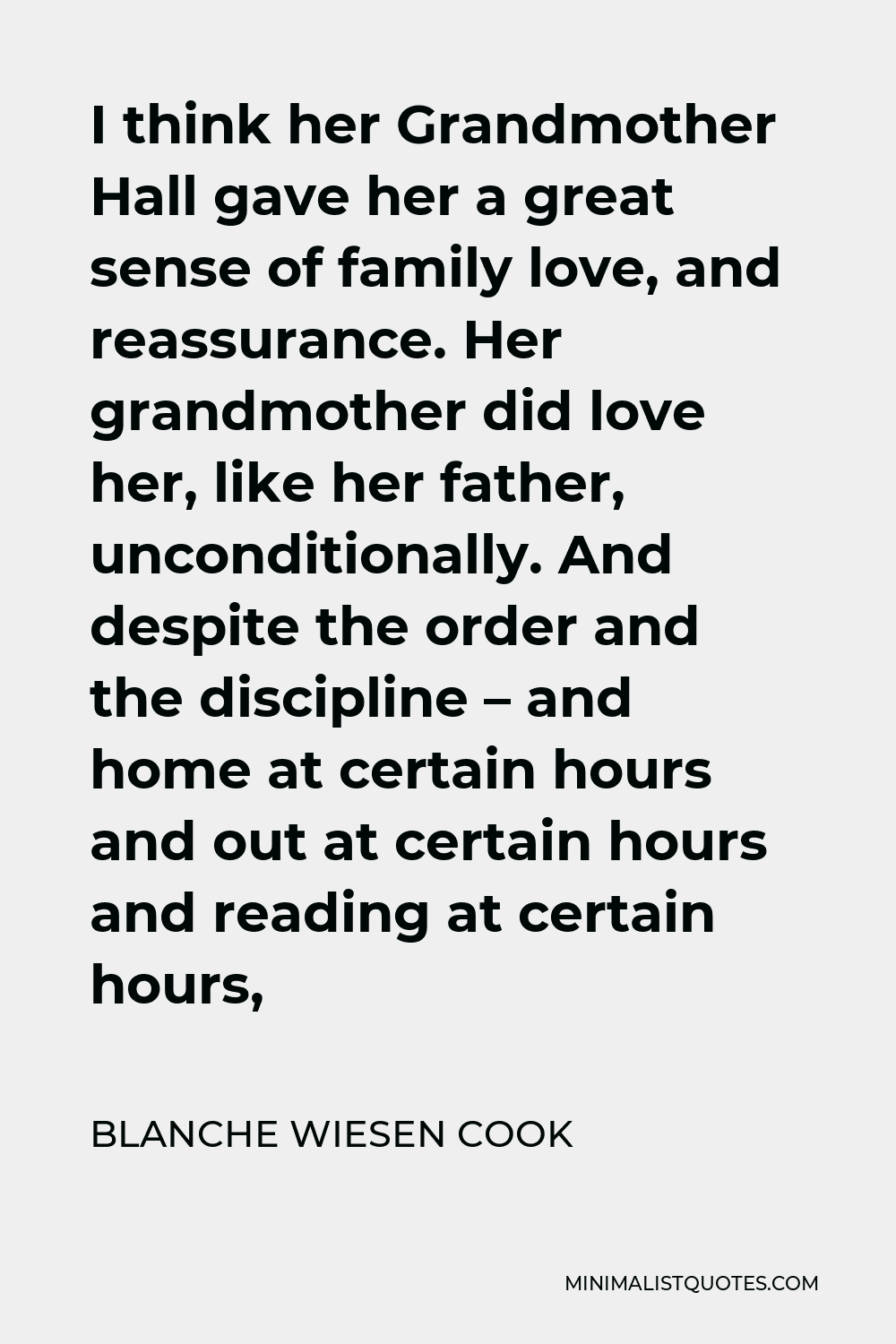Politics is not an isolated, individualist adventure. Women really need to emerge as a power to be the countervailing power to the men.
BLANCHE WIESEN COOKI think her Grandmother Hall gave her a great sense of family love, and reassurance. Her grandmother did love her, like her father, unconditionally. And despite the order and the discipline – and home at certain hours and out at certain hours and reading at certain hours,
More Blanche Wiesen Cook Quotes
-





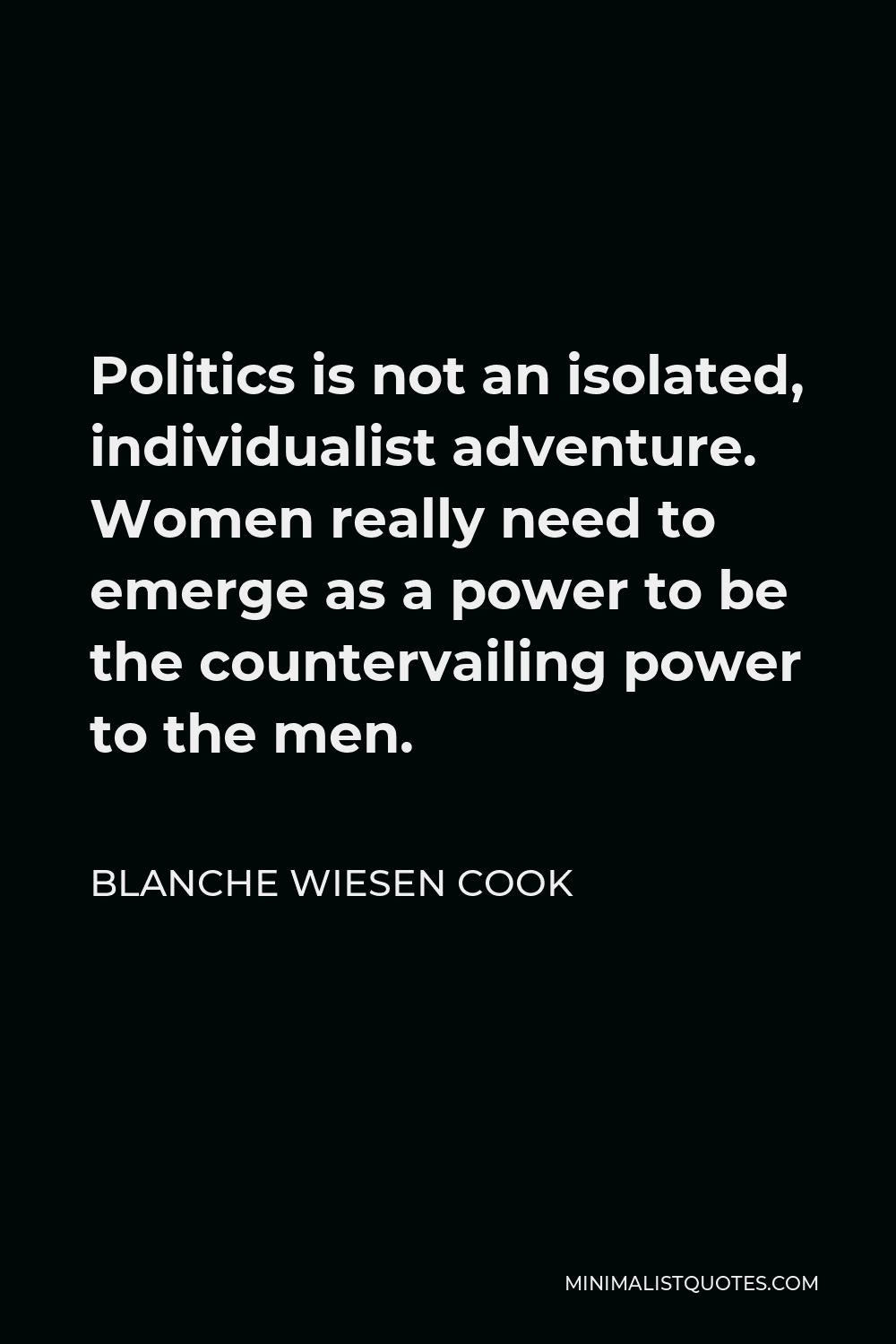
-





![Blanche Wiesen Cook Quote - So she [Eleanor Roosevelt] is an amazing First Lady. What other First Lady in U.S. history has ever written a book to criticize her husband’s policies?](https://minimalistquotes.com/wp-content/uploads/2023/03/so-she-eleanor-roosevelt-is-an-amazing-first-lady--683x1024.jpg)

So she [Eleanor Roosevelt] is an amazing First Lady. What other First Lady in U.S. history has ever written a book to criticize her husband’s policies?
BLANCHE WIESEN COOK -





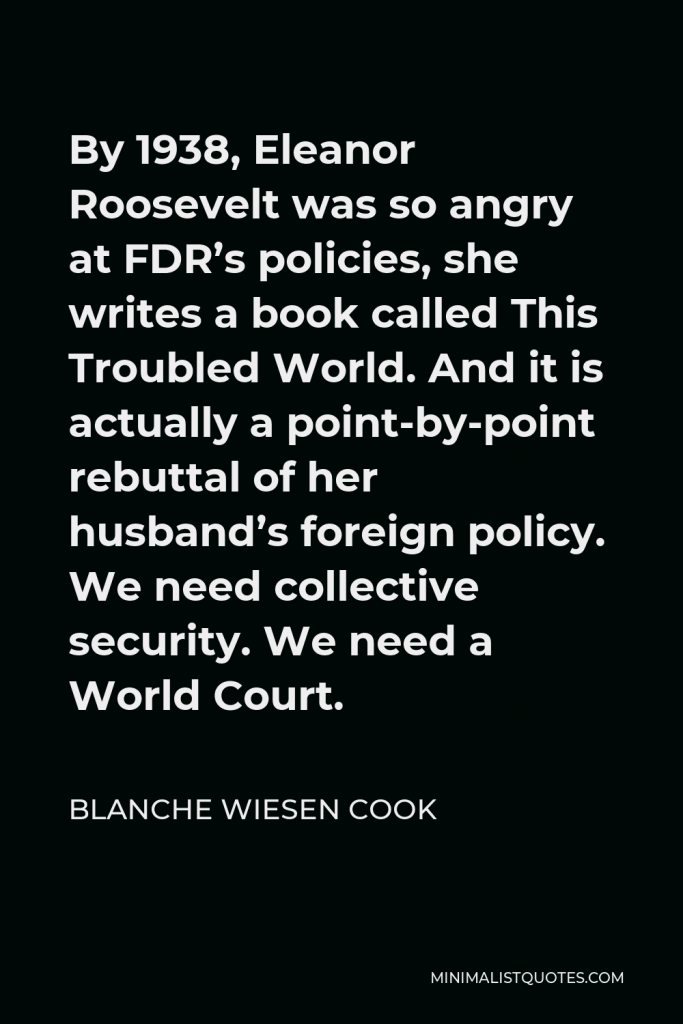

By 1938, Eleanor Roosevelt was so angry at FDR’s policies, she writes a book called This Troubled World. And it is actually a point-by-point rebuttal of her husband’s foreign policy. We need collective security. We need a World Court.
BLANCHE WIESEN COOK -





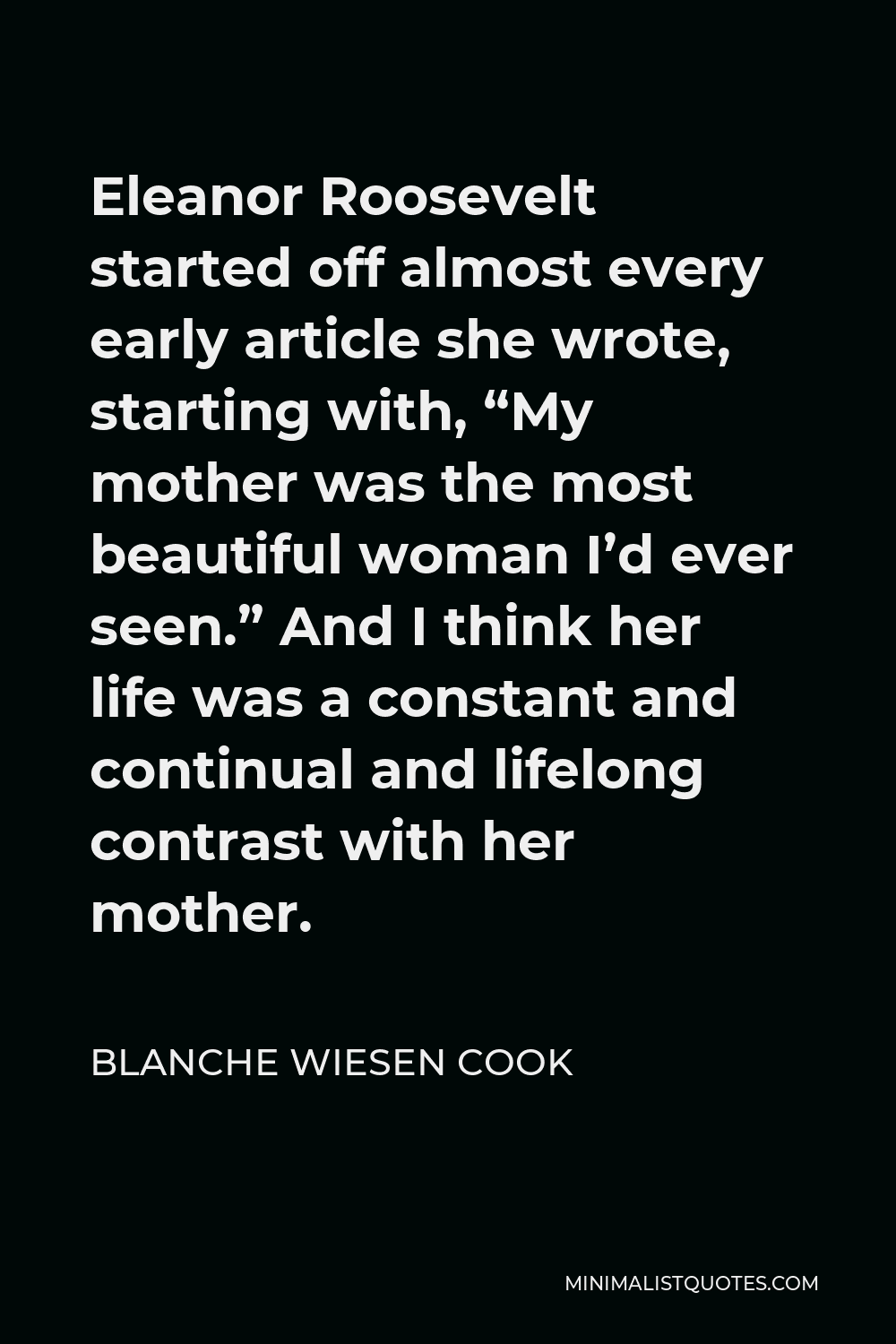
Eleanor Roosevelt started off almost every early article she wrote, starting with, “My mother was the most beautiful woman I’d ever seen.” And I think her life was a constant and continual and lifelong contrast with her mother.
BLANCHE WIESEN COOK -





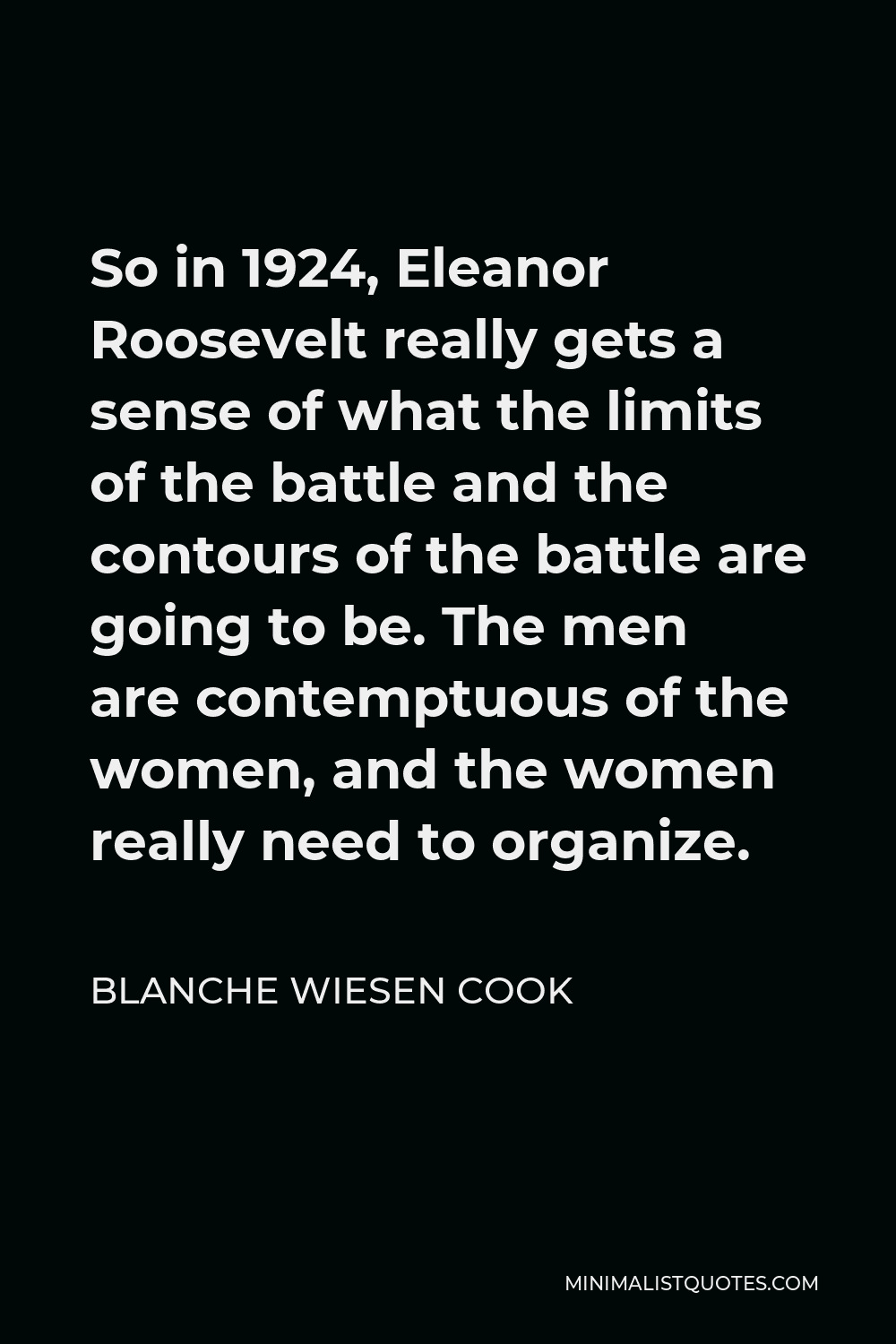
So in 1924, Eleanor Roosevelt really gets a sense of what the limits of the battle and the contours of the battle are going to be. The men are contemptuous of the women, and the women really need to organize.
BLANCHE WIESEN COOK -





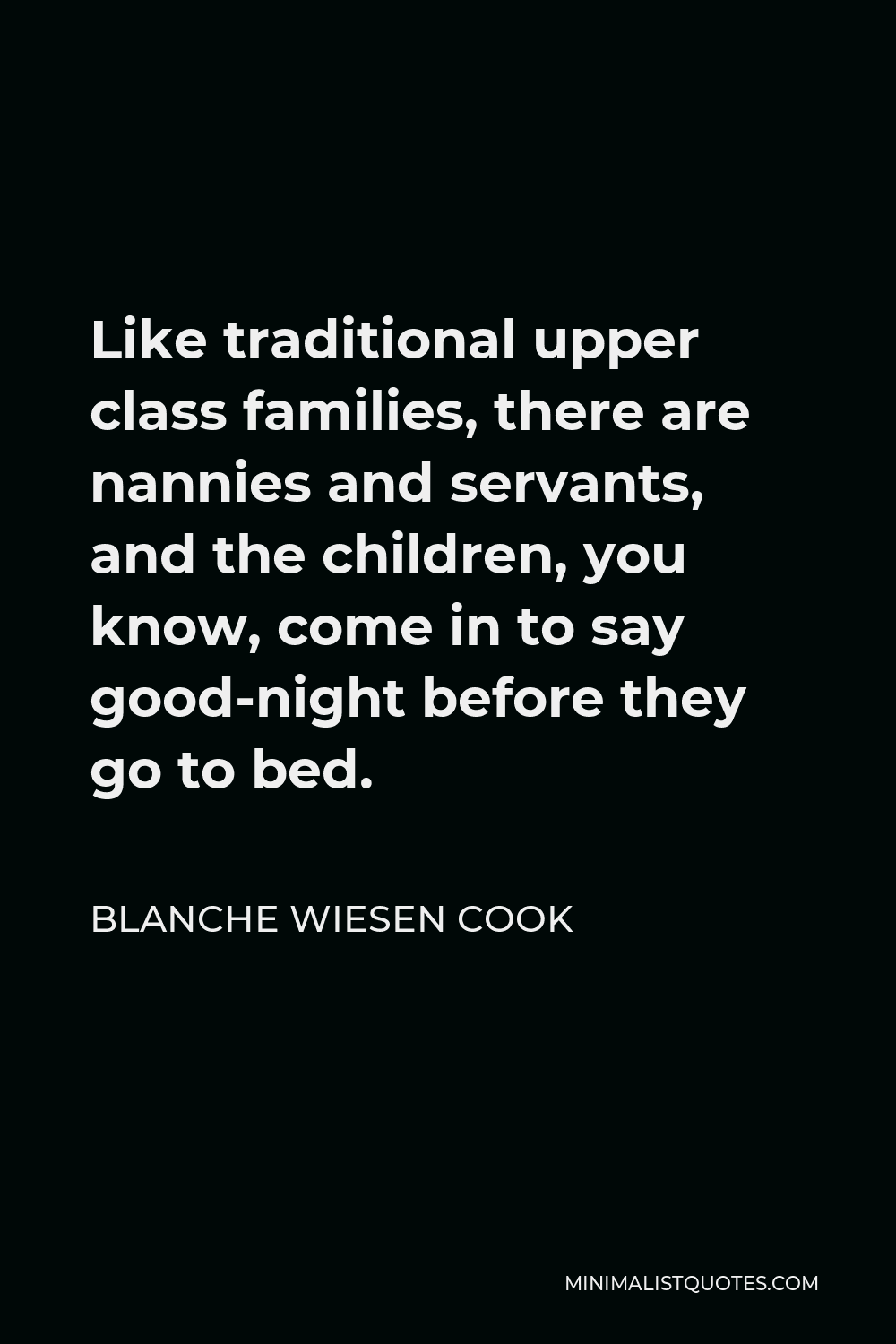
Like traditional upper class families, there are nannies and servants, and the children, you know, come in to say good-night before they go to bed.
BLANCHE WIESEN COOK -





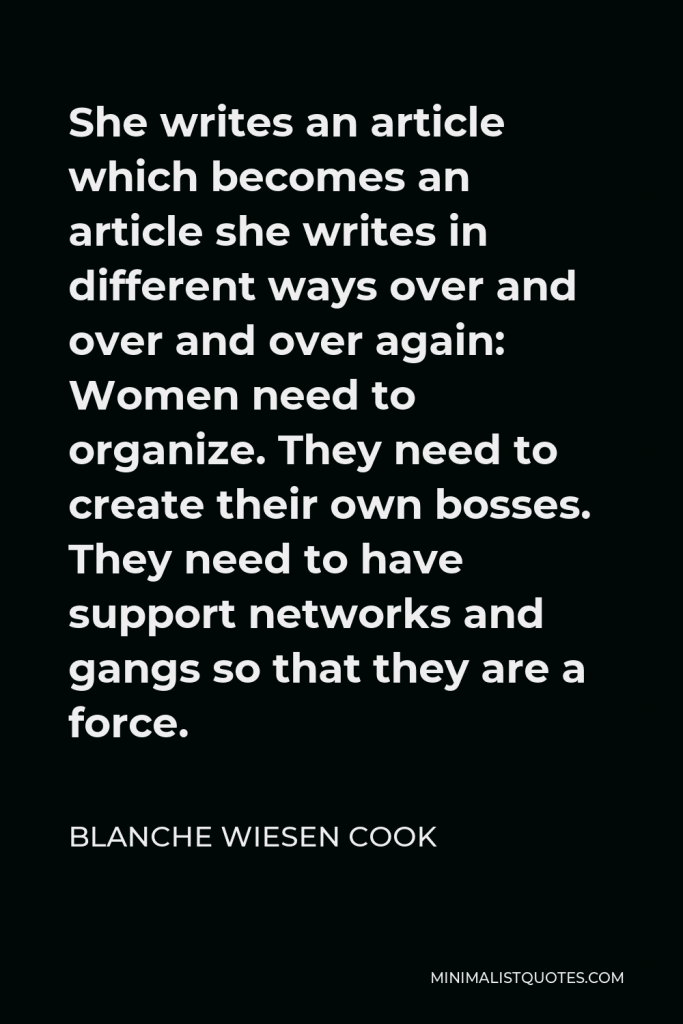

She writes an article which becomes an article she writes in different ways over and over and over again: Women need to organize. They need to create their own bosses. They need to have support networks and gangs so that they are a force.
BLANCHE WIESEN COOK -





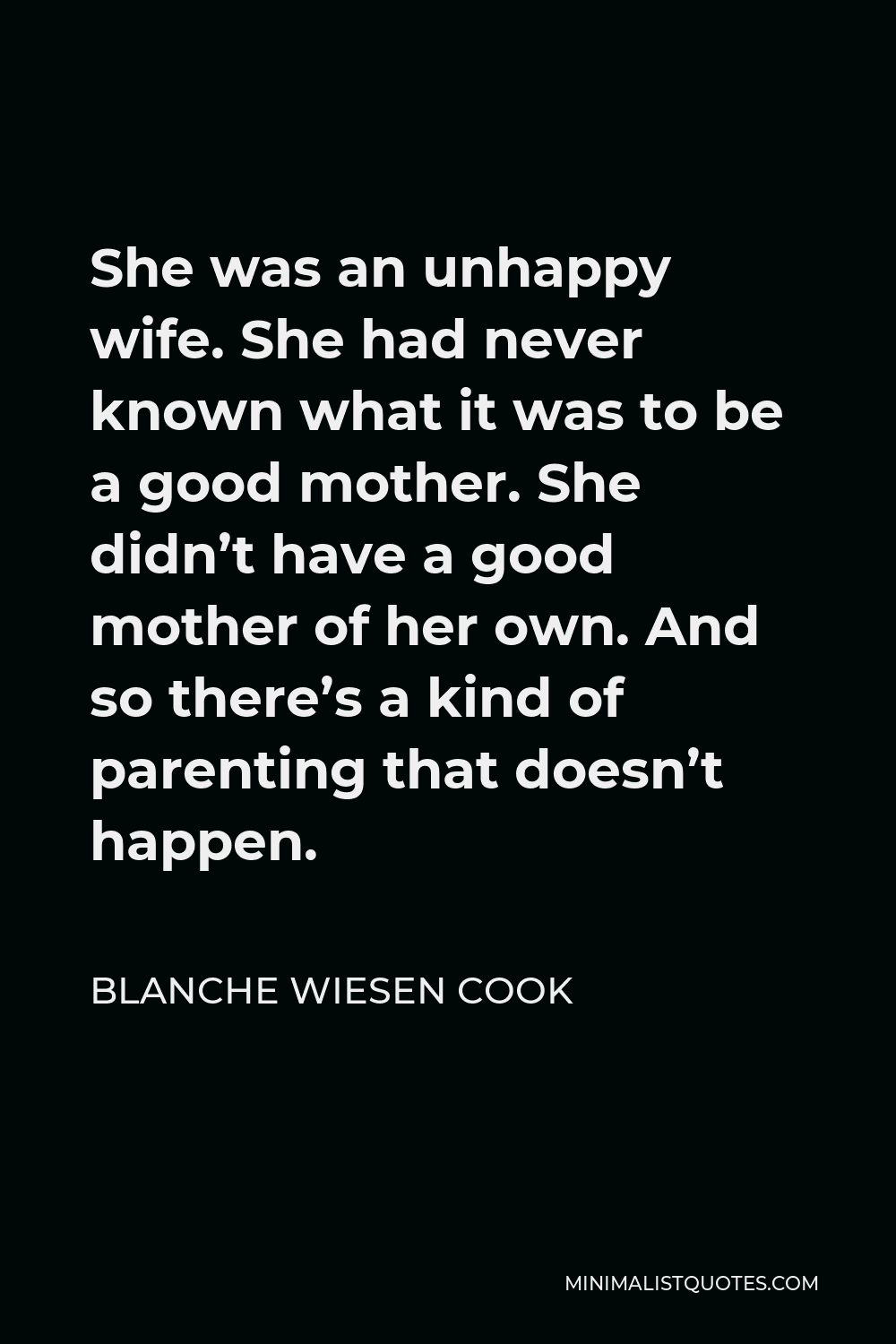
She was an unhappy wife. She had never known what it was to be a good mother. She didn’t have a good mother of her own. And so there’s a kind of parenting that doesn’t happen.
BLANCHE WIESEN COOK -





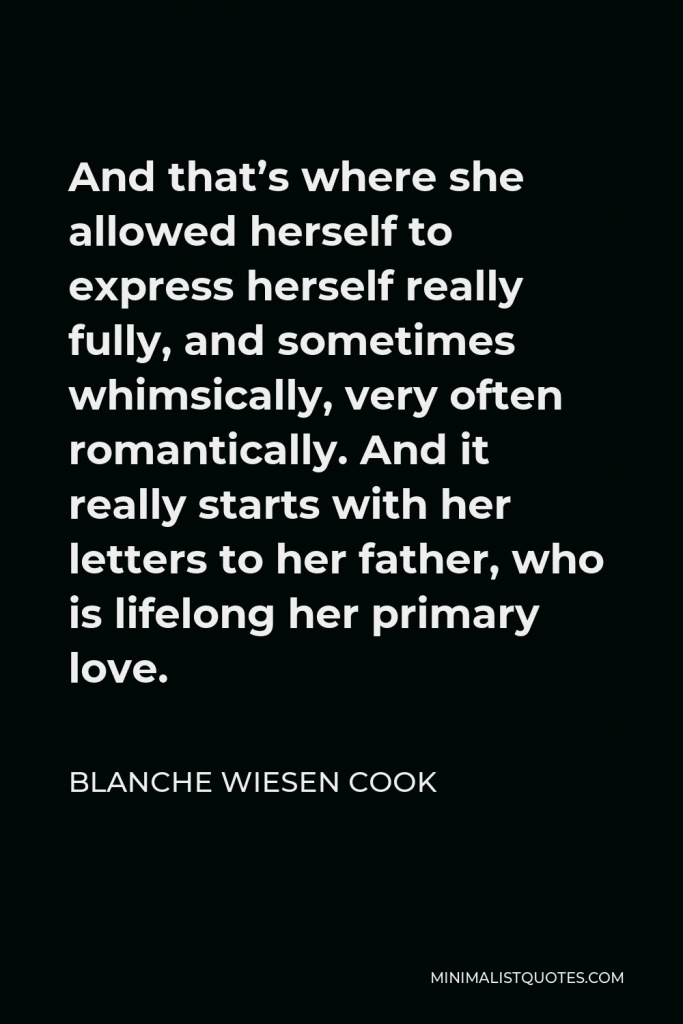

And that’s where she allowed herself to express herself really fully, and sometimes whimsically, very often romantically. And it really starts with her letters to her father, who is lifelong her primary love.
BLANCHE WIESEN COOK -





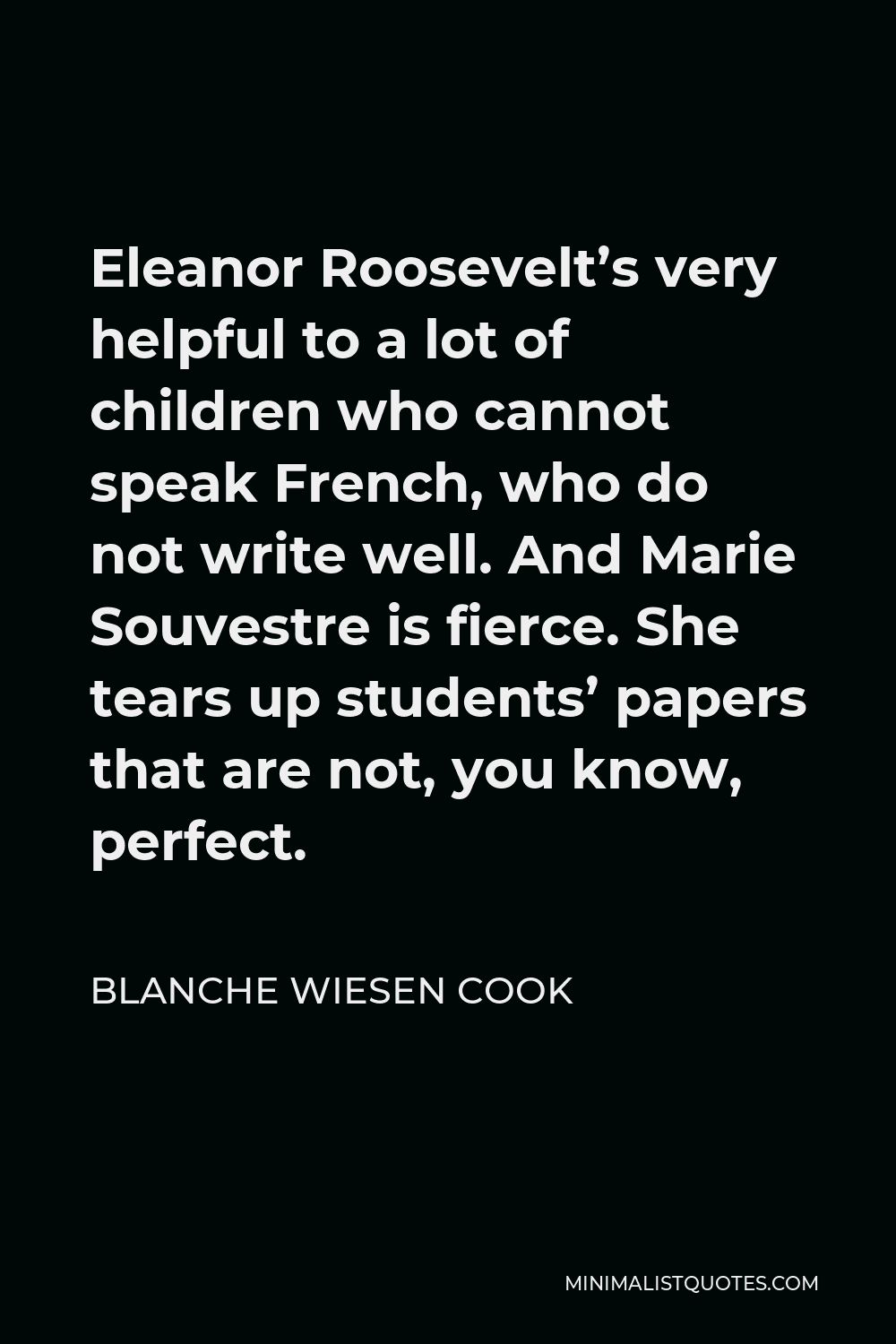
Eleanor Roosevelt’s very helpful to a lot of children who cannot speak French, who do not write well. And Marie Souvestre is fierce. She tears up students’ papers that are not, you know, perfect.
BLANCHE WIESEN COOK -





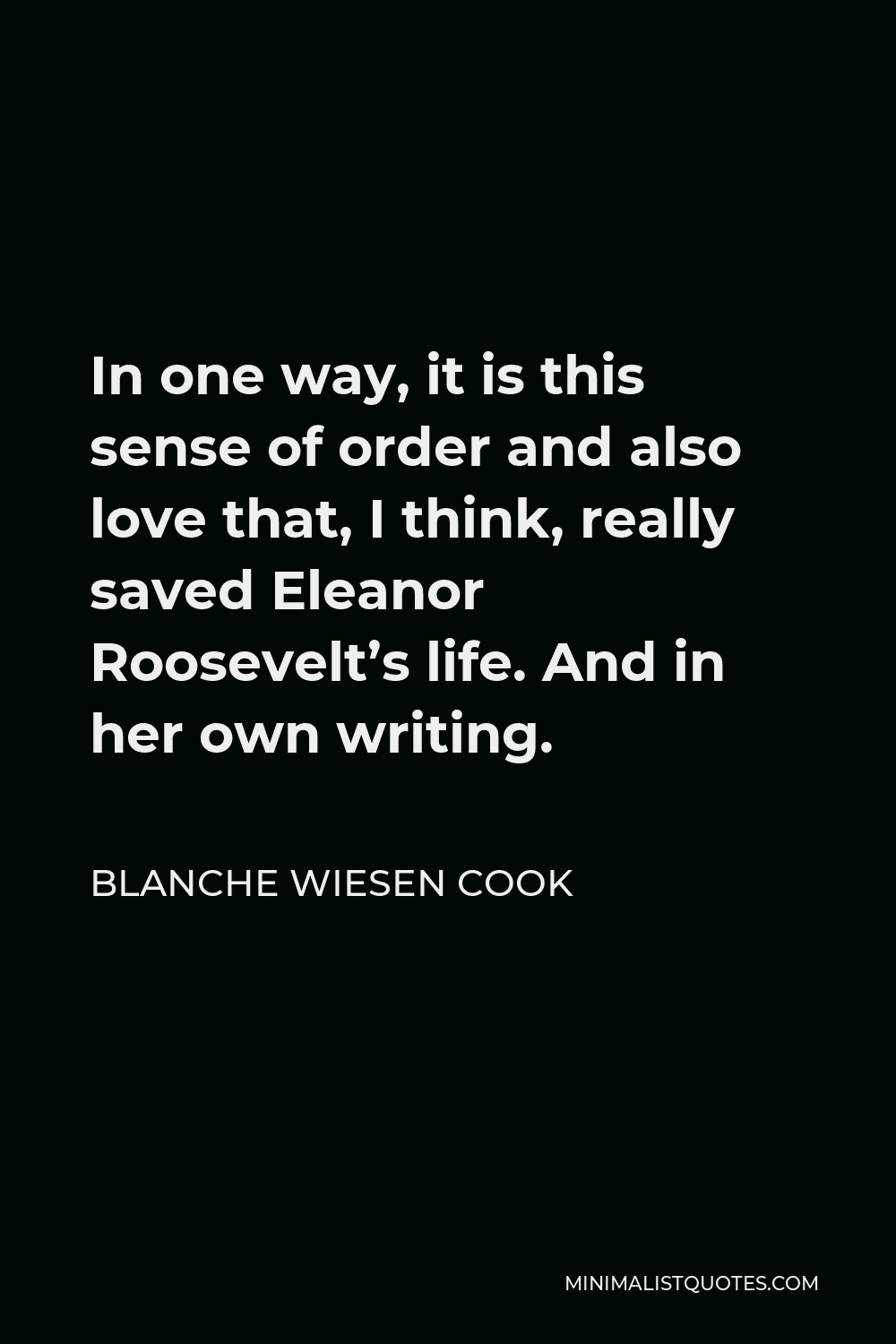
In one way, it is this sense of order and also love that, I think, really saved Eleanor Roosevelt’s life. And in her own writing.
BLANCHE WIESEN COOK -





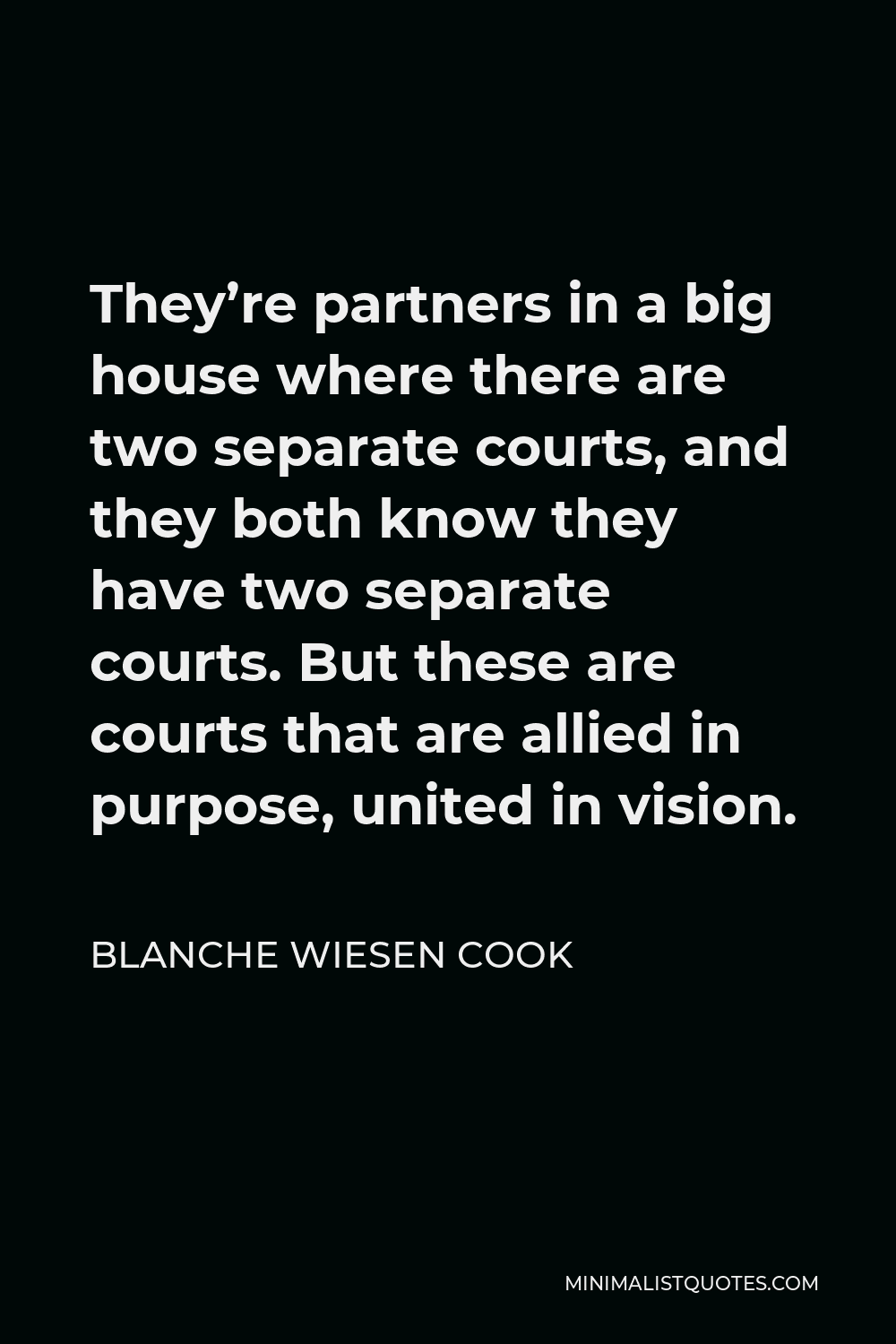
They’re partners in a big house where there are two separate courts, and they both know they have two separate courts. But these are courts that are allied in purpose, united in vision.
BLANCHE WIESEN COOK -





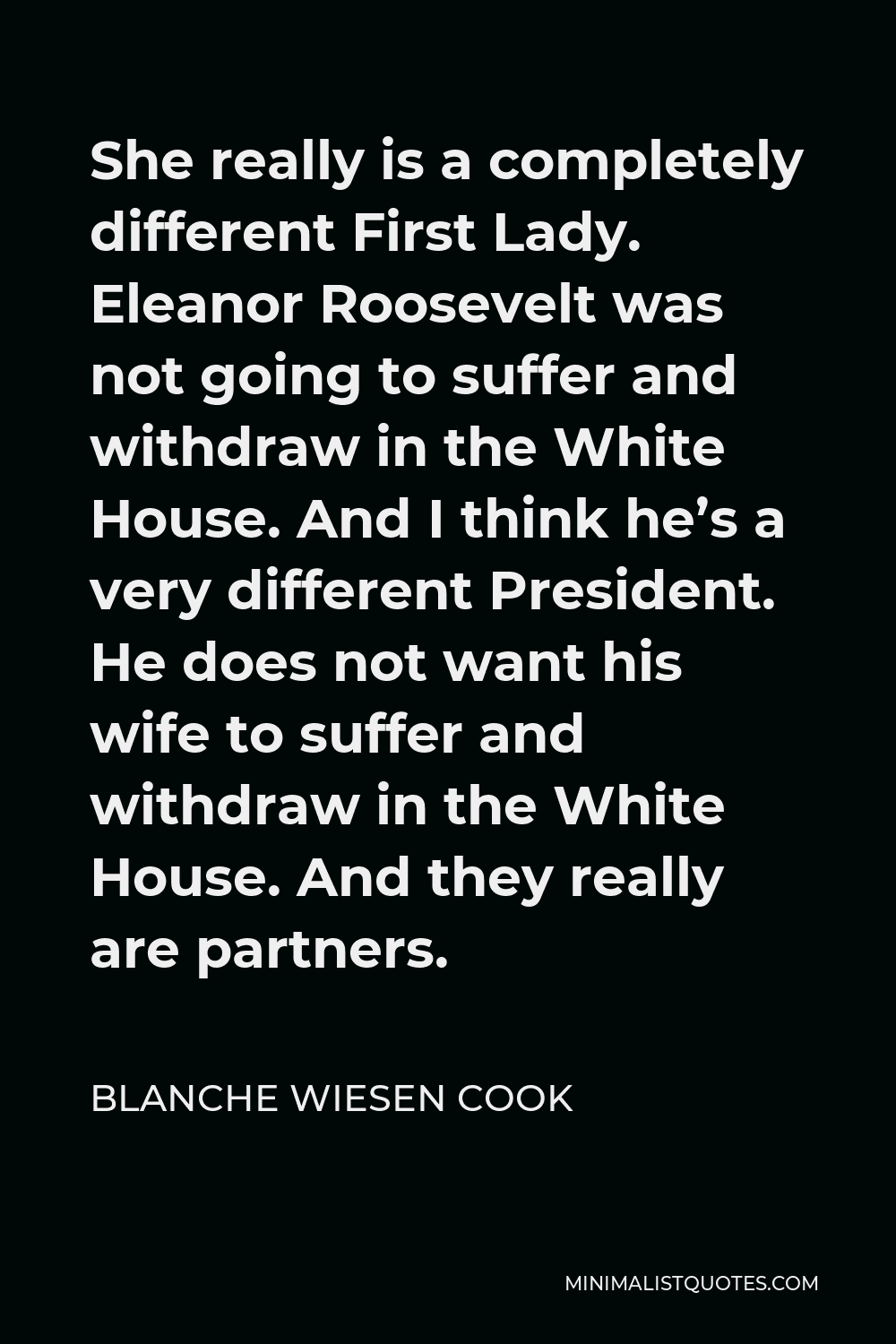
She really is a completely different First Lady. Eleanor Roosevelt was not going to suffer and withdraw in the White House. And I think he’s a very different President. He does not want his wife to suffer and withdraw in the White House. And they really are partners.
BLANCHE WIESEN COOK -





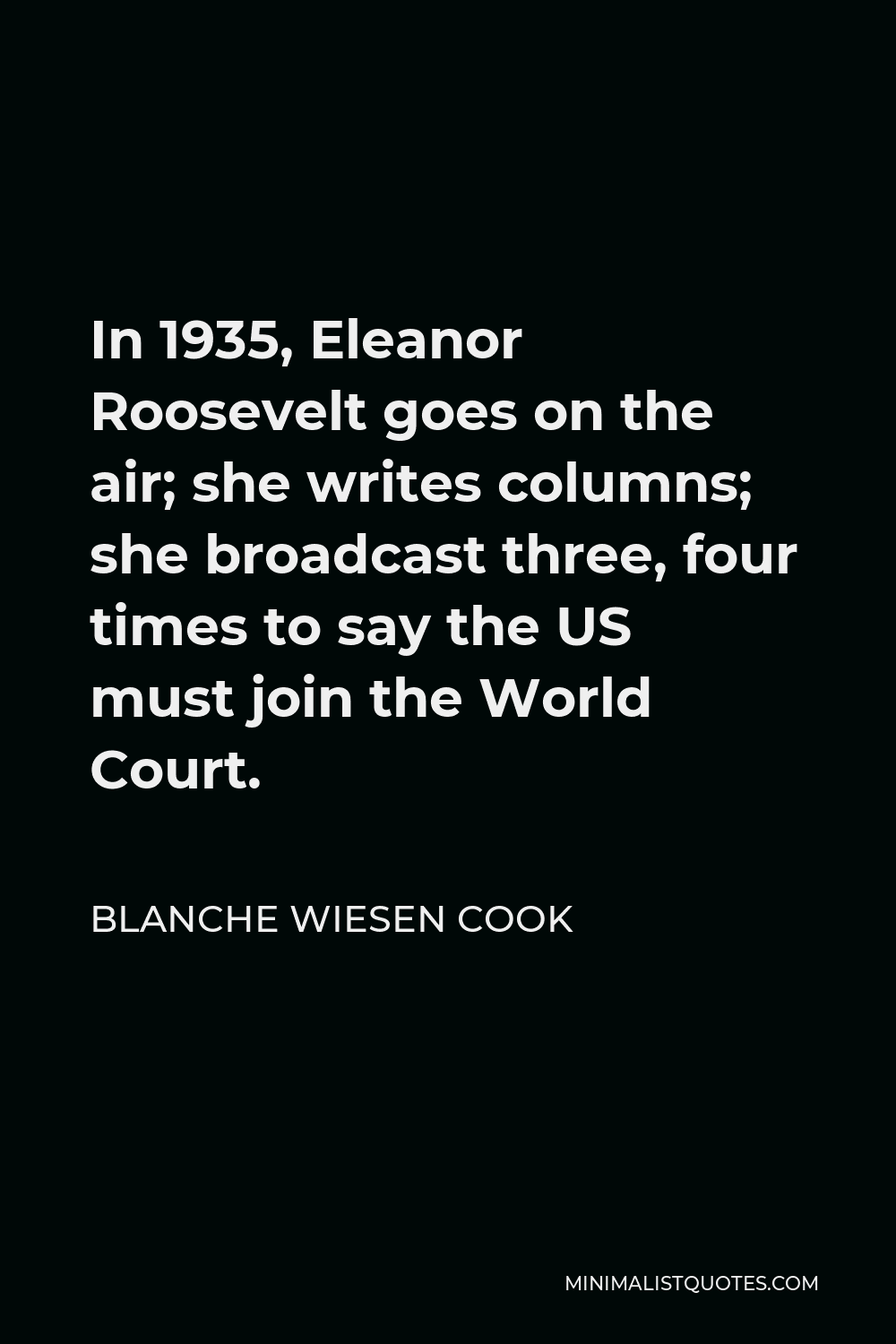
In 1935, Eleanor Roosevelt goes on the air; she writes columns; she broadcast three, four times to say the US must join the World Court.
BLANCHE WIESEN COOK -





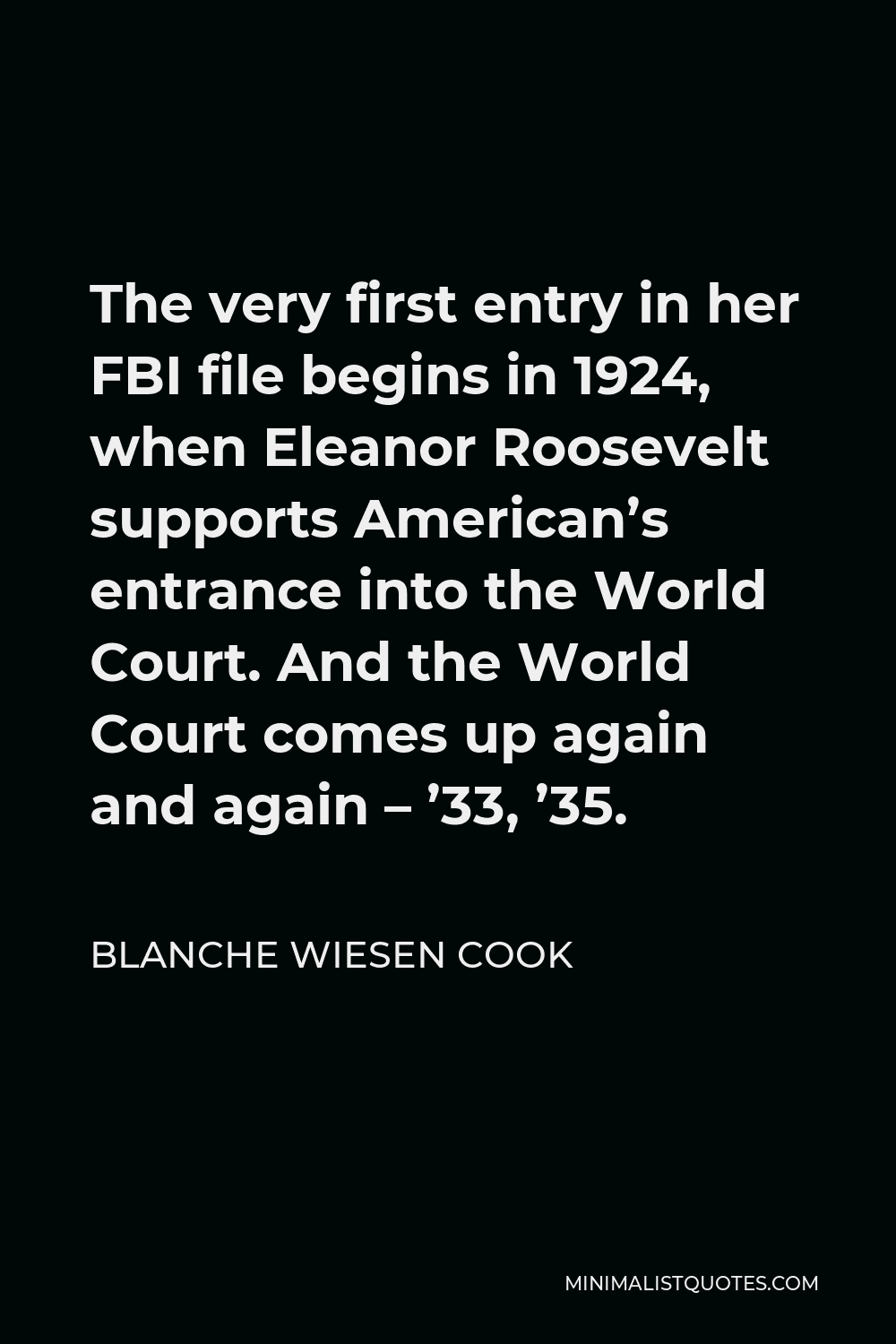
The very first entry in her FBI file begins in 1924, when Eleanor Roosevelt supports American’s entrance into the World Court. And the World Court comes up again and again – ’33, ’35.
BLANCHE WIESEN COOK -





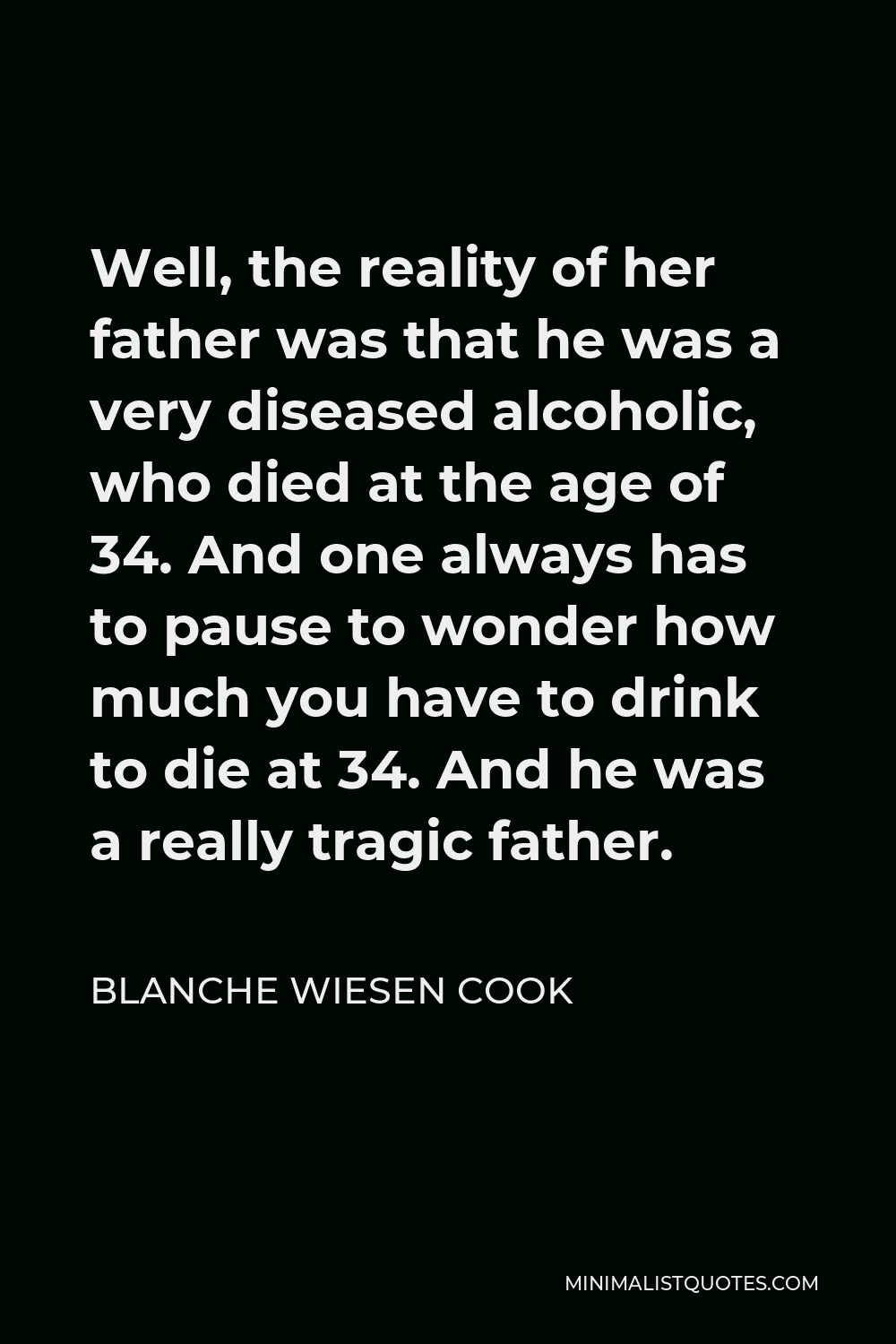
Well, the reality of her father was that he was a very diseased alcoholic, who died at the age of 34. And one always has to pause to wonder how much you have to drink to die at 34. And he was a really tragic father.
BLANCHE WIESEN COOK
